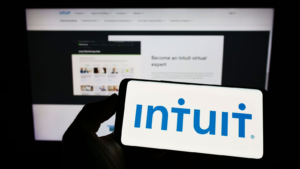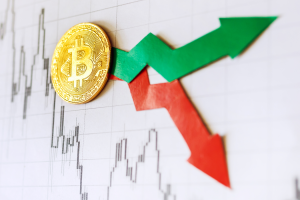
Optics show blue-chip stocks are trending in vogue with investors, as the market rally broadens out beyond technology companies.
The Dow Jones Industrial Average (DJIA), comprised of 30 blue-chip securities, rose 8% in November for its best month since October 2022. On the last day of November, the Dow gained more than 500 points in a single trading session. That gave plenty of momentum to the blue-chip index heading into December.
With expectations growing that interest rates have now peaked and are likely headed lower in 2024, investors may be pivoting. They seem to be spreading their capital around and placing bets on stocks that represent a broad cross-section of the economy.
As a year-end Santa Claus rally gathers team, we offer the three best blue-chip stocks to buy in December.
General Motors (GM)

Detroit automaker General Motors (NYSE:GM) just announced the raising its quarterly dividend payment. Thus, stockholders can expect an increase of 33% to 12 cents a share starting in 2024.
Also, the company is buying back $10 billion of its own stock and is reinstating 2023 earnings guidance. GM is aiming to regain investor confidence following a costly labor strike by the United Auto Workers (UAW). Judging by the market’s reaction, it worked.
Investors are giving the automaker’s moves a big thumbs up. GM stock has gained 16% since the company announced the dividend hike and stock buybacks. At the same time, analysts seem to have turned bullish on GM stock.
Mizuho Financial Group (NYSE:MFG) has upgraded GM stock to a buy rating from its previous neutral and raised its share price target to $42. This implies a 30% upside from current levels. Year to date (YTD), General Motors’ stock is still down 3%.
Walt Disney Co. (DIS)

Next, The Walt Disney Co. (NYSE:DIS) just reinstated its quarterly payout to shareholders after a three-year suspension.
The entertainment giant announced that it will pay a dividend of 30 cents a share to stockholders as of Dec. 11. The payment will be issued in January. Formerly, Disney suspended its dividend in early 2020 at the onset of the COVID-19 pandemic. That was the time that its theme parks were closed and most of its film and television productions were in shutdown.
Disney’s last dividend payment was in December 2019 and was worth 88 cents a share. CEO Bob Iger had said repeatedly that bringing back the dividend was one of his biggest priorities. Separately, Disney announced the appointment of two new board members. Morgan Stanley (NYSE:MS) CEO, James Gorman and Jeremy Darroch, who formerly ran British TV company Sky, will join Disney’s board in 2024. The dividend reinstatement and new board appointments are encouraging news from the Mouse House.
DIS stock is up only 3% this year, and the shares look pretty cheap at current levels.
Intuit (INTU)

Software company Intuit (NASDAQ:INTU) recently announced third-quarter financial results. Indeed, they were better than expected, reaffirming its guidance for the current fiscal year.
The company makes popular tax and accounting software products such as TurboTax and QuickBooks. INTU reported Q3 revenue of $3 billion, up 15% from a year ago. Wall Street had been looking for revenue of $2.88 billion in the latest quarter. Additionally, Intuit announced earnings per share (EPS) of $2.47, well above Wall Street forecasts of $1.98.
Also, the company said that it has begun to introduce artificial intelligence (AI) features to many of its products that create both images and text. For example, a new feature in the company’s consumer tax software provides an AI analysis of tax returns with insights on refunds for filers. Further, Intuit bought back $603 million of its own stock in the quarter, leaving $3.2 billion remaining on its current share-repurchase program.
For the current fourth quarter, Intuit reaffirmed revenue growth of 11% to 12%, with profits of $2.25 to $2.31 per share, both of which align with analyst forecasts. INTU stock has gained 44% on the year and is up 178% through five years.
On the date of publication, Joel Baglole held a long position in DIS. The opinions expressed in this article are those of the writer, subject to the InvestorPlace.com Publishing Guidelines.





